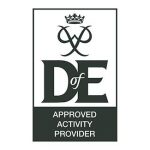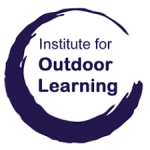Pendarren House’s secondary courses are about raising young people’s achievement through an organised, powerful approach to learning in which direct experience is of prime importance.
Meaningful learning occurs through acquiring skills through real life hands-on activities.
This is not only about what we learn, but most importantly, how and where we learn. It is about improving young people’s understanding, skills, values, personal and social development and can act as a vehicle to develop young people’s capacity and motivation to learn.
Real-world learning brings the benefits of formal and informal education together and reinforces what good educationalists have always known: that the most meaningful learning occurs through acquiring knowledge and skills through real-life, practical or hands-on activities. There is a wealth of evidence which clearly demonstrates the benefits for young people’s learning and personal development outside the classroom.
In summary, Pendarren House courses:
- tackles social mobility, giving children new and exciting experiences that inspire them to reach their true potential. These real world experiences raise aspirations, equipping young people with the skills they need to become active and responsible citizens and shape a fit and motivated workforce.
- addresses educational inequality, re-motivating children who do not thrive in the traditional classroom environment, such as those from disadvantaged backgrounds or with Special Educational Needs. Young people who experience learning outside the classroom as a regular part of their school life benefit from increased self esteem, and become more engaged in their education both inside and outside the classroom walls.
- supports improved standards back INSIDE the classroom, raising attainment, reducing truancy and improving discipline. Learning outside the classroom is known to contribute significantly to raising standards & improving pupils’ personal, social & emotional development.
Inclusion – working with children with challenging behaviour
There is substantial research evidence to suggest that outdoor adventure programs can impact positively on young people’s attitudes, beliefs and self-perceptions – examples of outcomes include independence, confidence, self-esteem, locus of control, self-efficacy, personal effectiveness and coping strategies.
Interpersonal and social skills can also benefit from outdoor learning, with effects such as social effectiveness, communication skills, group cohesion and teamwork.
Outdoor education enables students and teachers to interact in an environment free from the limitations of the classroom. The change in environment can facilitate learning by removing students from the classroom setting which they may already identify with failure.
Pendarren House uses outdoor education to develop communication skills, group work, problem solving, decision making, coping with change and other difficulties. All students can access a great range of activities such as canoeing, climbing and caving. Outdoor activities are enjoyable and exciting; however they also have the advantage of taking pupils out of their comfort zone and building self-esteem.
When used correctly, Outdoor and Adventurous Activities are effective as a tool for facilitating social and emotional development, as well as the physical benefits gained from such activities.
See Benefits of Outdoor Education on the Group Leaders page for the evidence.







